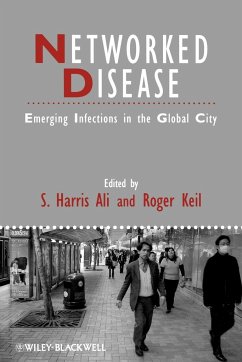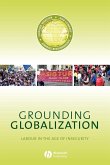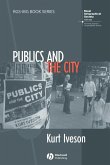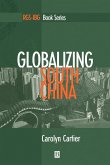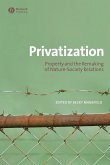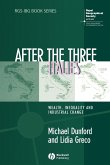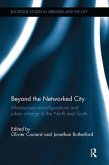Debates abound over just how prepared healthcare systems worldwide are to deal with the fallout from infectious diseases. Yet the urban aspects of such diseases - particularly within the context of globalizing cities and the global cities network - have been virtually ignored. This collection examines the impact of globalization on the transmission of and response to SARS in Toronto, Hong Kong, and Singapore. With contributions from some of the most distinguished scholars in the field - along with newer, innovative works by aspiring junior researchers - Networked Disease uses the SARS outbreak as a springboard for further discussion about infectious disease management in progressively globalizing and urbanizing societies. This tightly integrated thematic selection offers a unique and timely contribution to a vitally important field of research.
Hinweis: Dieser Artikel kann nur an eine deutsche Lieferadresse ausgeliefert werden.
Hinweis: Dieser Artikel kann nur an eine deutsche Lieferadresse ausgeliefert werden.
?Much interesting material and probing analysis can be found inthis text, which is suitable for graduate students and academicsconcerned with the intersection between cities and health.?(Canadian Journal of Sociology, Summer 2009)
?This is a unique book that examines emerging infectiousdiseases through the lens of sociologists and would be aninteresting reference for public-health practitioners,travel-health experts, infectious disease physicians, sociologists,and political scientists.? (The Lancet.com, October2009)
"In this unique and invaluable reconstruction of how the deadlySARS virus hitchhiked from China to Canada in 2002?03, we aresquarely confronted with the enormous inadvertent biologicalconsequences of economic globalization and the emergence ofso-called 'world cities'."
Mike Davis, University of California, Irvine
"As both an urban/environmental sociologist and resident ofToronto during the 2003 SARS crisis, I have the highest praise forNetworked Disease. The contributors have done a masterfuljob identifying the practical and theoretical challenges associatedwith the global spread of emerging infectious diseases. Thiscutting edge material should seriously engage academics, students,and practitioners in social geography, urban studies, publichealth, and environmental sociology."
John Hannigan, University of Toronto
?This is a unique book that examines emerging infectiousdiseases through the lens of sociologists and would be aninteresting reference for public-health practitioners,travel-health experts, infectious disease physicians, sociologists,and political scientists.? (The Lancet.com, October2009)
"In this unique and invaluable reconstruction of how the deadlySARS virus hitchhiked from China to Canada in 2002?03, we aresquarely confronted with the enormous inadvertent biologicalconsequences of economic globalization and the emergence ofso-called 'world cities'."
Mike Davis, University of California, Irvine
"As both an urban/environmental sociologist and resident ofToronto during the 2003 SARS crisis, I have the highest praise forNetworked Disease. The contributors have done a masterfuljob identifying the practical and theoretical challenges associatedwith the global spread of emerging infectious diseases. Thiscutting edge material should seriously engage academics, students,and practitioners in social geography, urban studies, publichealth, and environmental sociology."
John Hannigan, University of Toronto
